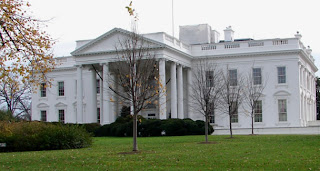Muddled Washington
Posted Sunday, October 3, 2010 in Current Affairs, News by ArmyofPakistanFormer president Pervez Musharraf’s call for a constitutional role for the Pakistan Army has led many to describe him as ‘crazy’. Declaring that the army is Pakistan’s only saviour when in the process of launching a political party seems contradictory, and a tad self-defeating, if not outright crazy.
One assumes that through his muddled comments, Musharraf was pointing to his willingness to operate within the civil-military schism that is the historic reality of Pakistani governance. These days, he’s not the only one struggling to manage the discordance between the country’s democratic aspirations and its micromanaging military.
In Washington, too, politicians and pundits are rethinking their strategy for engaging with the two faces of Pakistani power. Recent talk of coups, revolutions, orphans and actors have left many scratching their heads, wondering what the Pakistani political set-up is fated to be in coming months.
Previously, Washington has known that it could rely on the Pakistan Army in turbulent times to stabilise the country, check the excesses of the civilian government, and protect US interests on the ground. At this juncture, too, the US needs to be confident about the reach of GHQ’s puppet strings. In the run-up to November’s mid-term elections, with the situation in Afghanistan deteriorating, Washington will be counting on our army to keep bickering politicians on a tight leash, and instead focus on striking at Pakistan-based militants and, eventually, brokering a deal (the key to a US exit strategy) with the Taliban.
But few in Washington would have been reassured on Monday when Gen Ashfaq Kayani is believed to have reprimanded the president and prime minister for their government’s incompetence and corruption. The reality it seems is that the US government’s relations with the Pakistan Army are fraying — in the current environment, the explicit reminder that the army is the de facto governing power could not have been welcome.
After all, the Washington-GHQ relationship has recently faced many obstacles. The incursion of Nato aircraft into Pakistan and the attack on a military checkpoint led Interior Minister Rehman Malik to question whether the US and Pakistan are allies or enemies. As if to provide an answer, Pakistan suspended Nato and US supply routes to Afghanistan.
Before that, September’s record 22 drone attacks raised hackles as they targeted the strongholds of Hafiz Gul Bahadar and the Haqqani group, both traditional allies of the intelligence and security forces.
GHQ is also probably miffed at the US response to a video that shows men wearing Pakistan Army uniforms executing six others in civilian garb. American officials are not fully convinced by the army’s claim that militants staged the video. Instead, they are invoking the law that requires the US to cut funding for foreign militaries that commit gross violations of human rights. By even raising the spectre of sanctions against the Pakistan Army, Washington has indicated that even old friends need to draw the line somewhere.
It doesn’t help that in the midst of all this, the publication of Bob Woodward’s Obama’s Wars has highlighted the growing frustrations in Washington with what is portrayed as a game-playing, India-centric Pakistan Army that fails to crack down on militant safe havens.
It is notable in this context that the Obama administration is returning to an earlier strategy: capacity building of the Pakistani civilian government (a policy enshrined in the passage of the Kerry-Lugar Act). As tensions with the military mount, Washington seems to be working to empower the political infrastructure so that it can serve as a viable, future counterpoint to the army. This impetus explains the US’s significant contribution towards flood relief.
It also contextualises the renewed US obsession with improving Pakistani taxation. In addition to placating American taxpayers who are growing impatient with Pakistan’s aid dependence, this measure can strengthen the present government by providing it with internally generated revenue to implement projects.
In the interest of enhanced political stability — and in a throwback to the US-orchestrated Musharraf-Bhutto deal — there is also talk in Washington of supporting a national unity government. The logic is that such a set-up would be immune to infighting within the political sphere that has made the ruling PPP government vulnerable. The participation of all political stakeholders would also provide an urgently needed system of checks and balances at a time when flood relief aid continues to trickle in and complaints about corruption are proliferating.
Such a solution seems highly unlikely, and not only because of the strident tone of current political warring (consider the PML-N’s withdrawal of support for Gilani’s government; the coming together of two PML factions in an effort to keep the N-League out of Sindh; and MQM chief Altaf Hussain’s recent accusations that certain actors were out to destroy him and his party).
The truth is, a national unity government will not take hold in Pakistan because none of the political actors want to take ownership of the country in its blighted, post-flood, economically ravaged state. Opposition and coalition politicians have critiqued the government’s handling of the floods, but they have relinquished the responsibility to improve the situation to others: Musharraf and the MQM are looking to the army for solutions, while the PML-N appears to have washed its hands off the whole matter.
While Washington ponders how to handle the two-edged sword that is Pakistani governance, our civilian and military leaders should take advantage of one fact: an affront to national sovereignty is unacceptable to all. By developing the momentum generated by a universal condemnation of the recent Nato incursions, the army and government could begin to tackle contentions in matters of corruption, economic instability and disaster management.
Subscribe to:
Post Comments (Atom)

0 comments:
Post a Comment